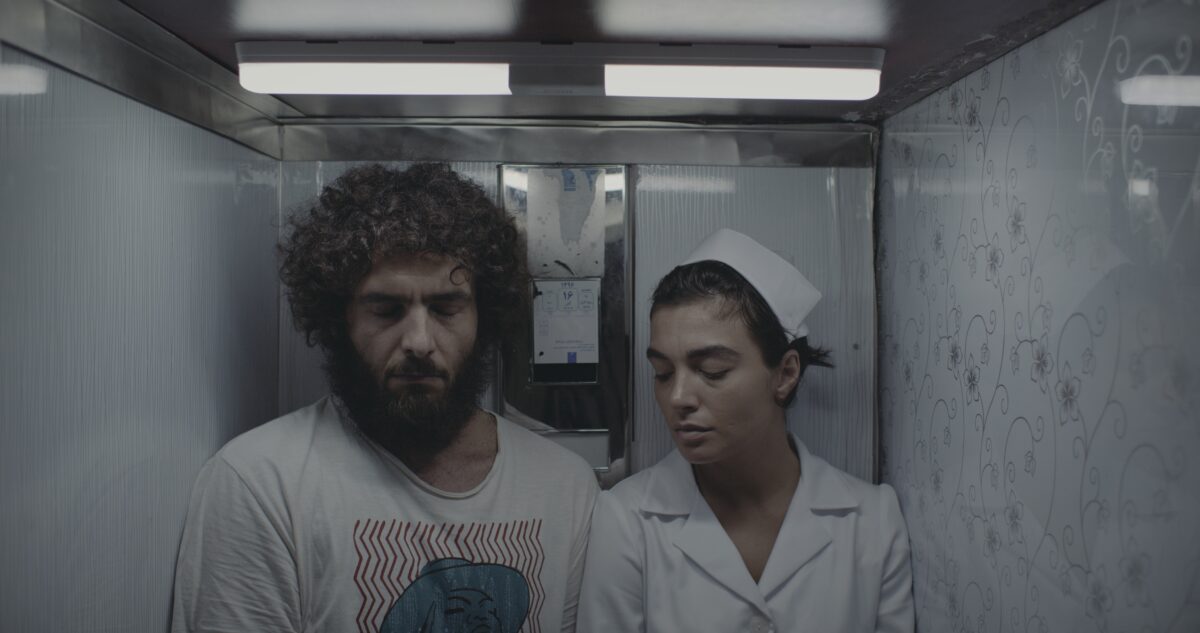The surprisingly fruitful genre of the Iranian car movie gets a sterling new entry with Ali Ahmadzade’s Critical Zone, which follows Amir (Amir Pousti), a Tehran drug dealer, on his nighttime rounds across the city. That premise practically screams the phrase ‘seedy underbelly’, but Ahmadzade’s Tehran is more like a Wonderland, even as one of his intentions here is clearly to depict corners of Iranian society that officially don’t exist.
Amir is a Schraderesque character – nocturnal, watchful, transcendentally lonely – but the film finds a sly humour that tinctures what could easily remain monochrome gloom. In one sequence, which is imbued with a species of oddness so specific that its surreality tips over into verisimilitude, Amir visits a grimy retirement home and helps the nurse dole out some of his homemade weed muffins. As most of the residents enter a blissful fugue state, stoned out of their gourds, one of them strikes up a conversation with Amir about Farsi poetry. The pair quote and discuss lines by Forough Farrokhzad and Mehdi Akhavān, while Mystery, Alaska plays on the TV behind them. It’s one of several moments in the film in which Amir acts as a strange kind of Hadean social worker.
Ahmadzade goes for some stylistic flourishes – artificial reverb on the soundtrack, sped-up shots of traffic, a camera attached to Amir’s steering wheel – that emphasize the queasy uncanniness of Tehran after dark, but the film already evokes its haunted world of streetlight amber and headlight white so strongly that they seem supernumerary. Nevertheless, even the occasional sense of throwing everything at the wall suggests not loose eclecticism but simmering rage. This is not a film about angry people, but it is an angry film, determined to do justice to the other Tehran – a world of users, dealers, queers and sex workers that has its own improvised forms of care.
